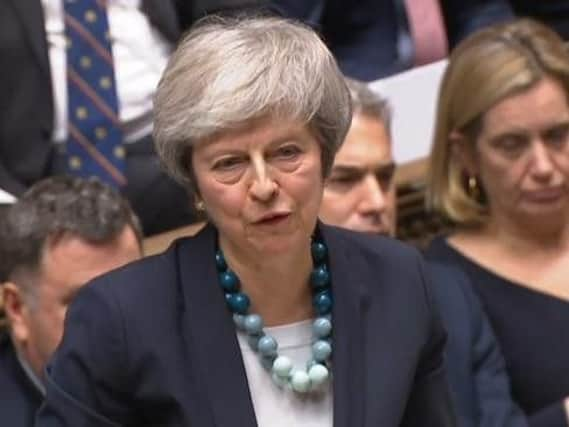Theresa May survives bid to force her from office


Labour leader Jeremy Corbyn lodged a motion of no confidence in the aftermath of a crushing defeat defeat for the Prime Minister's Brexit deal, which could have led to an election campaign within 14 days.
The government will now seek to reach a compromise with MPs from its own side and other parties in a bid to get a revised Brexit deal through the House of Commons as early as Monday.
Advertisement
Hide AdAdvertisement
Hide AdBut addressing MPs at the start of debate on his no confidence motion, the Labour leader accused Mrs May of failing to reach out across party lines.
He said any previous prime minister would have resigned faced with such a massive loss, the worst in parliamentary history, on the most important issue facing the country.
Ministers insisted she did want to work with MPs to find a way forward which could command a majority in the Commons. But opening the debate on a motion of no confidence, Mr Corbyn said there had been no offer of cross-party talks.
"There has been no communication on all-party talks. All the Prime Minister said was she might talk to some members of the House," he told the Commons.
"That isn't reaching out. That is not recognising the scale of the defeat they suffered last night."
Both Tory rebels and her allies in the DUP, who voted against the Withdrawal Agreement on Tuesday evening, supported the Government. But MPs on both the Remain and the Leave wings of the party warned she needed to make major changes to the deal if she is to get it through the Commons.
Responding to Mr Corbyn's no-confidence motion, Mrs May dismissed his call for a general election saying it would be "the worst thing we could do".
"It would deepen division when we need unity, it would bring chaos when we need certainty, and it would bring delay when we need to move forward," she told MPs.
Advertisement
Hide AdAdvertisement
Hide AdEarlier, during Prime Minister's Questions, she appeared to leave open the door to a possible extension of the Article 50 withdrawal process, which will see Britain leave the EU on March 29, to allow more time for a deal.
Asked by Tory grandee Ken Clarke whether she would "modify her red lines" and extend Article 50, Mrs May said: "The Government's policy is that we are leaving the EU on March 29, but the European Union would only extend Article 50 if actually it was clear that there was a plan that was moving towards an agreed deal.
"That is the crucial element of ensuring we deliver on Brexit."